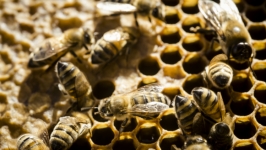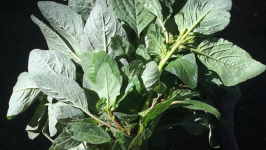Spring Cleaning
Idaho legislators bid Boise farewell three weeks later than usual in 2019. What kept lawmakers in their seats after the bell was the ordinarily routine business of reauthorizing administrative rules—rules created by state departments that govern everything from consumer protection and electrical permits to the sex offender registry and the Idaho Honey Commission. In the end, they left the proverbial ball in the court of Gov. Brad Little, who, just days after the vernal equinox, decided to do a spring sweep.
“This is, in some ways, a housecleaning practice,” said Emily Callihan, spokesperson for Little.
Within a few weeks of being sworn in as governor, Little issued the Red Tape Reduction Act: For every administrative rule proposed by a state department, two must be eliminated or significantly simplified. There are some exceptions to the order: Rules that directly impact the health or safety to the public are protected against the tide; but when the legislature let the sun set on department rulebooks, responsibility for rewriting those rulebooks fell on departments themselves. Among them is the Idaho State Department of Agriculture.
“This year’s unprecedented overhaul—it’s just that, it’s just new,” said Chanel Tewalt, communications specialist for ISDA. So far, 20% of all administrative rules have been identified for removal, and an additional 20% for significant change. At ISDA, everything that isn’t bolted down by state or federal law is eligible to get caught up in the sweep, and as ISDA turns 100 years old in 2019, the scale and scope of the project is enormous. On the docket are scores of items as various as grades of apples and prune standards, organic food product rules, livestock marketing and the Idaho Nurseries and Florists Law.
On the Idaho Honey Commission’s docket, however, is just one item: rules governing honey standards. According to Rick Waitley, administrator of the Idaho Honey Commission, that’s in part because its own administrative rules have been regularly pruned over the years, with the last major change being in the last half decade, when it established marketing rules distinguishing between honey and “funny honey”—the kind of corn-based sweetener that sometimes masquerades as honey at fast-food restaurants—to protect Idaho producers from low-cost imitation sweeteners.
“We keep the rules very current,” Waitley said. “[The current administrative rules process] is business as usual for us.”
He has, however, seen other administrators lay on the chopping block arcane weights and measures, or rules for outdated farming implements like scythes and equipment that has been electrified or computerized since their passage, which sometimes took place in the 1910s.
To me, there’s a lot of common sense here, he said. “[These rules] just haven’t been done—they were done by their grandparents.”
The rules changes will likely have minimal impacts on consumers, and the Little administration stressed that the housecleaning won’t touch items regarding food safety. Waitley added that in many cases, the changes will likely have a soft touch on producers, as well, whose operations don’t edge into regulatory territory covered by antique guidelines.
Instead, the process is expected to make agricultural administrative rules easier to use and render them into plain language.
“Before, there were parts of the rules that were outdated,” Callihan said. “Now, people would see that’s just clearer. ... You can read them like a book and it would make sense.”
The changes would also pave the way for new administrative rules that are more reflective of the culture surrounding food. Waitley returned to the example of “funny honey,” and imagined that in the future, regulators and producers may not see a need to distinguish between honey and corn-based sweeteners, making the rule unnecessary.
Another example is Idaho’s 2015 cottage food law, which eased regulations on small-scale, low-risk food producers. With its passage, Waitley said, there came fresh debates about food safety that were ultimately reflected in administrative rules.
“We reviewed the rules around cottage foods, and those rules were really interesting, but in the end, it just put a level of security there.”
State departments will conduct their reviews of administrative rules through a series of public hearings through the summer, and finalize the process in November, when the proposed new rules will be submitted to the governor’s office, but their journey doesn’t end there.
In early 2020, the Idaho Legislature will reconvene, and where in the past the process of renewing administrative rules took a few days or less, that same process is expected to be considerably longer as lawmakers review and ratify the proposed changes departments decided on over the summer.









